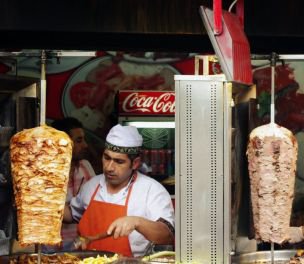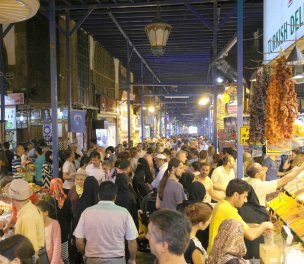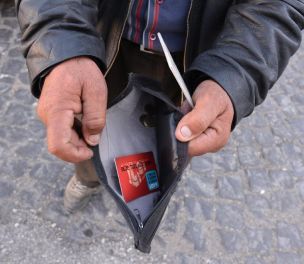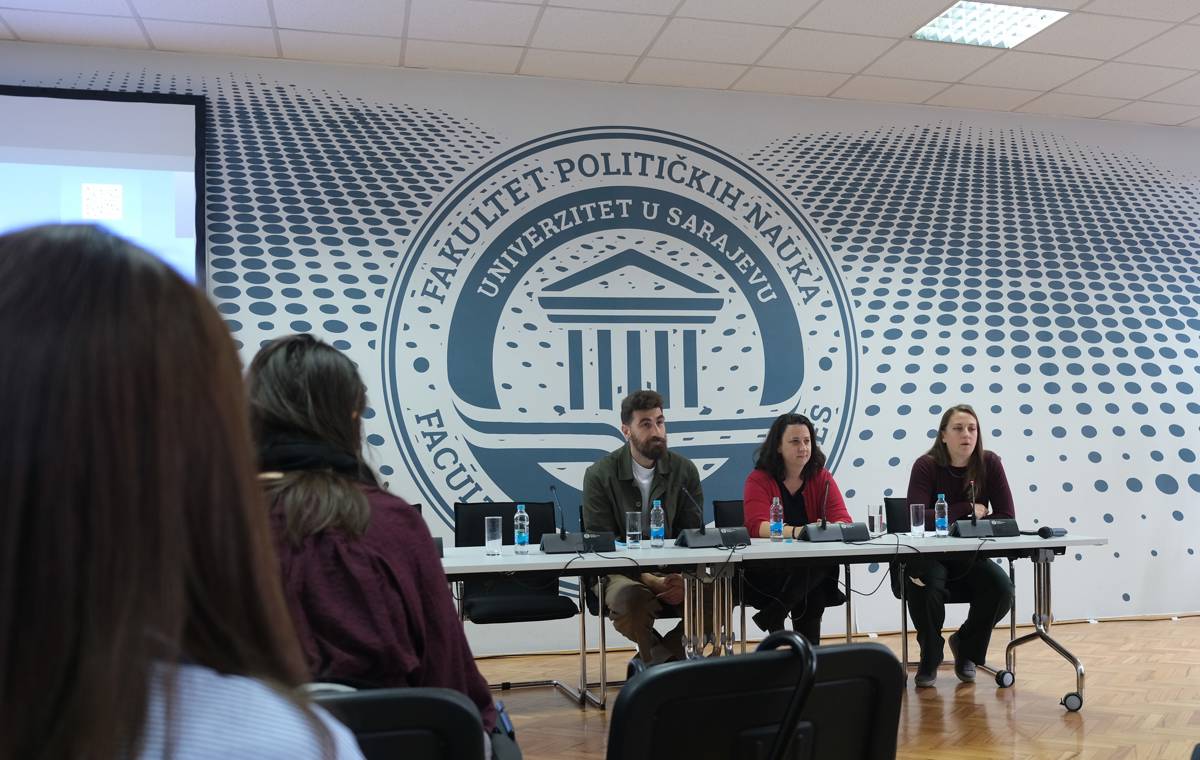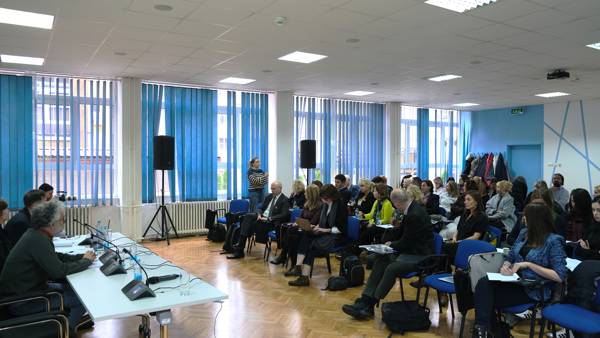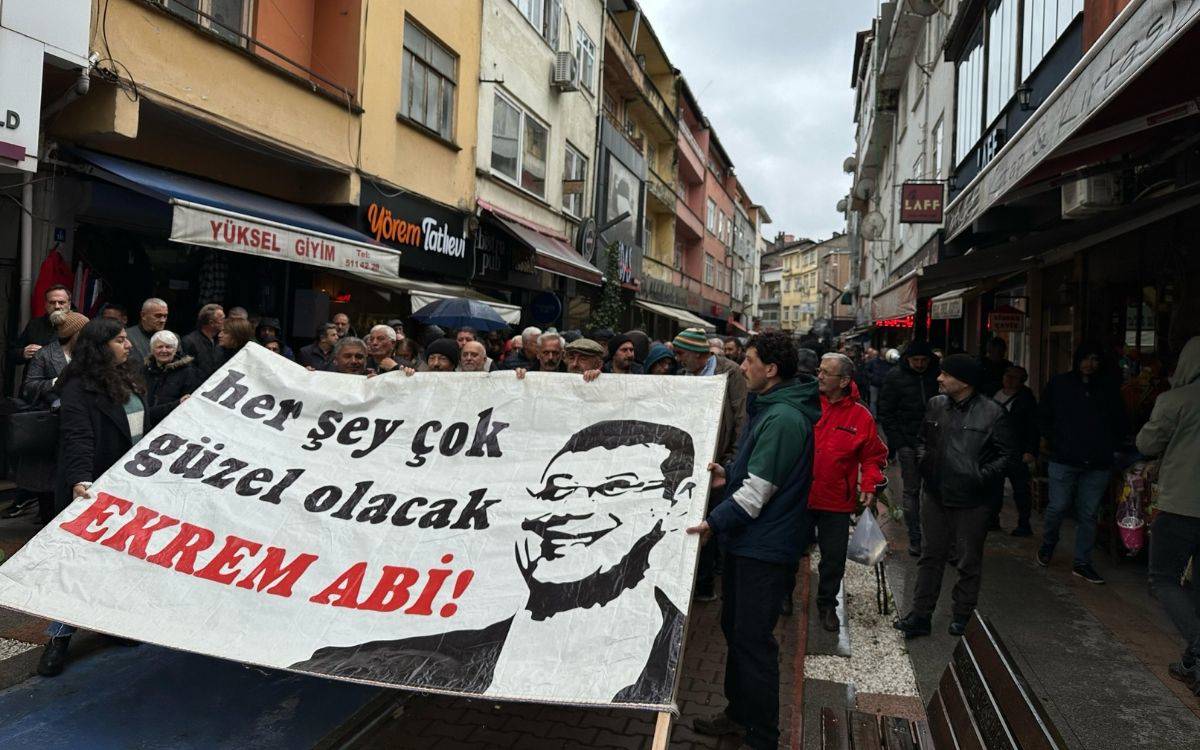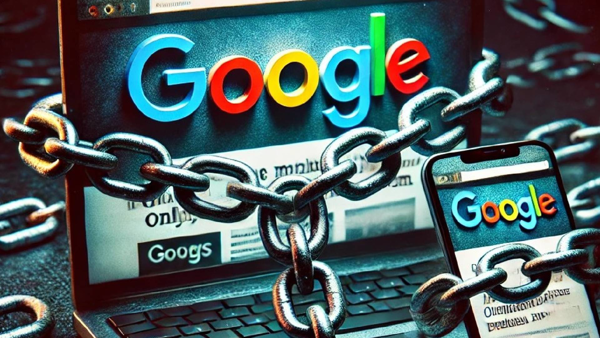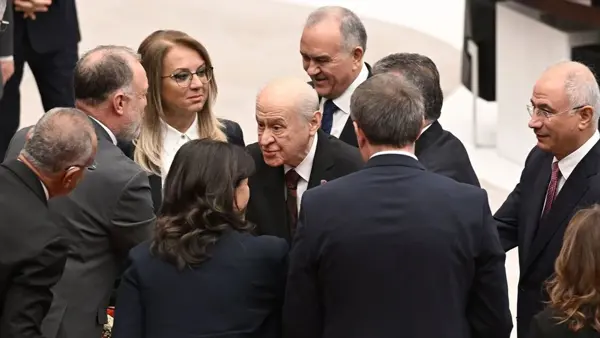"Yes, it doesn't have meat in it, but they can eat their fill. They can smell meat at least."
This is how the owner of a fast-food restaurant in Bakırköy, an upper-middle class district in İstanbul's European side, describes the new item on the menu, the plain wrap (dürüm), to a TV reporter.
The chef puts a slice of lavash bread on kebabs on the grill to "give flavor." He then fills it with greens, tomatoes and onion. With a glass of ayran, a yogurt drink, the plain wrap is sold for 10 lira (1 US dollar = 14.69 Turkish lira).
It is students who mostly eat plain wraps, the restaurant owner says, adding, "But I'm sorry to sell this."
The price of regular dürüm that includes 100 grams of beef kebab starts from 30 lira on online food ordering apps.
"Plain" versions of Turkey's popular street foods, dishes and desserts have emerged one after another over the past months with the economic crisis being felt more strongly.
The issue became a talking point in the country when a photo showing a sign that read, "New product: Plain baklava" in a patisserie went viral on social media in early February.
It could not be identified where the photo was taken, but the plain baklava, which is basically dough and sugar syrup, is sold for 19.99 lira per kilo, at least 10 times cheaper than baklava filled with chopped walnuts, hazelnuts or pistachio.
At around the same time, a fast-food chain introduced the plain version of tost, a pressed hot sandwich filled with cheese and other ingredients like sujuk, a beef sausage. The plain tost only includes long green pepper and tomato paste or ketchup.
It was discussed by people and politicians on social media so much that the owner of the company had to explain why they had introduced the plain tost. It was a "humorous response" to price hikes and expensiveness, he said.
A few days later, an advisor to the leader of the main opposition Republican People's Party (CHP) shared the menu of a restaurant, which included "plain gözleme," a wrap-like dish without the usual ingredients, like cheese or minced meat.
The list goes on with stuffed meatballs without meat, plain mantı (a ravioli-like dish), plain borek and so on.
Beef and nuts have always been expensive in Turkey, and they were the first casualties when businesses tried to go "creative" to find something cheap enough to sell to their customers.
From bread to gasoline
Even according to the much-disputed official figures, Turkey's annual inflation rate rose from 36.08 percent in December to 54.4 percent in February. It was 123.80 percent according to the Inflation Research Group (ENAG), a group of economists whose figures are also met with skepticism by some experts.
The spike in food, housing and energy prices, however, is beyond the discussions of economists. It is deeply felt by everyone but the richest.
Even bread prices nearly doubled in a year with queues in front of municipalities' cheap bread buffets getting longer and longer.
The Meat and Milk Board, which provides cheaper meat and dairy products, increased the prices by about 50 percent last month. "The queues were so long that we had to increase the prices," said its head, causing an outrage.
There is virtually no food product whose price hasn't excessively increased since the start of the year.
Some of the problems are exacerbated by the Russia-Ukraine war. Due to the increase in crude oil prices, the authorities had to hike gasoline and diesel prices seven days in a row in the first week of March.
Sunflower oil prices are also affected as the warring countries are Turkey's largest exporters of that product. Some grocery stores imposed quotas on sunflower oil.
The crisis that can't be denied anymore
The problem of high living costs reached such an extent that even President Recep Tayyip Erdoğan and his allies don't deny it anymore. He recently abandoned the propaganda describing the economy like a "rearing horse" and began to admit the problems.
However, he addresses himself as the only person who can solve the crisis and asks for the citizens' patience until the 2023 elections, after which, he says, everything will be fine.
Erdoğan may be counting on the fact that no opposition leaders, or the opposition as a six-party alliance, are regarded by the public as people who can end the economic crisis.
While Erdoğan's Justice and Development Party (AKP) and their allies Nationalist Movement Party (MHP) have been constantly losing support even before the crisis hit, the opposition have not gained as much support as they would like to.
According to a recent opinion poll quoted by a pro-government columnist, over 70 percent of the public think the economy is the country's most important problem, and 33.8 percent think it is the AKP who can solve the problems. Nearly 30 percent of the respondents' answer to this question was the CHP.
All in all, Turkey's ruling alliance, with no apparent plans to solve the problems in the economy, still enjoys significant public support amid an economic crisis that would definitely destroy any other political party in the history of the republic.
Millions depend on government assistance
A wide social assistance program for the poor has been core to Erdoğan's strategy in maintaining public support. Under his helm, the rich have become richer, the poor have gained a little and the middle class has weakened.
In the last year, the government ramped up social assistance because of the pandemic and probably in consideration of the upcoming elections.
According to figures of the Ministry of Family and Social Services, the government provided assistance for basic needs such as food and clothing to 1.15 million households in 2020. This number rose to 2.83 million households in 2021. In other words, nearly 10 million people were in need of assistance from the government for their basic needs, considering the average household population of 3.35.
Also, four million households will receive assistance for electricity and natural gas bills this year, Erdoğan announced in February, following a sharp increase in electricity and natural gas prices at the start of the year.
Whether the government will be able to keep poverty "manageable" remains to be seen. (VK)




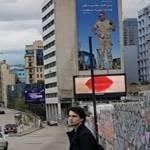
.jpg)
